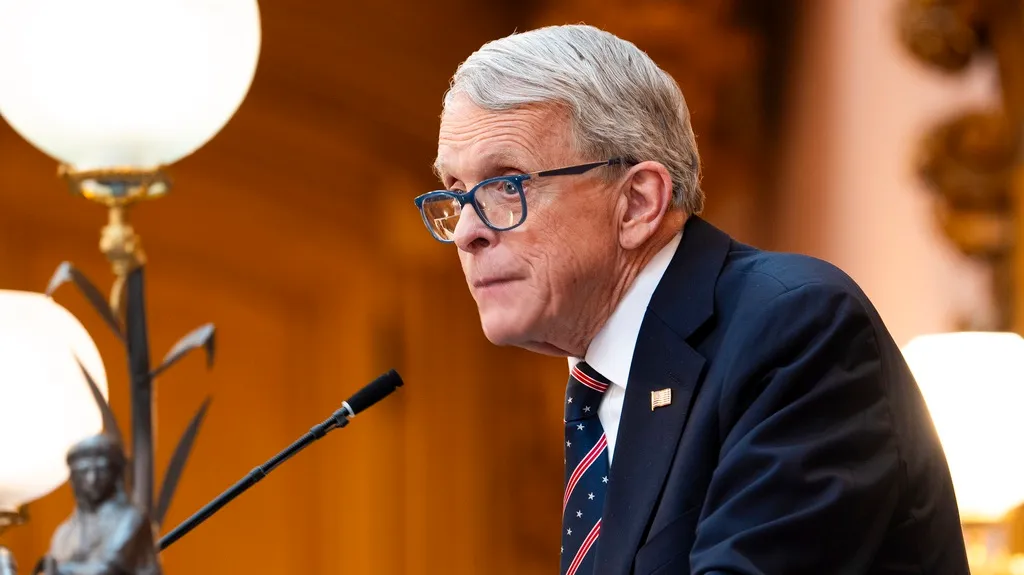September 9, 2011
A Positive View: The Top Ten Films About HIV
Zachary Bloom READ TIME: 5 MIN.
10. "Rent" -- Christopher Columbus's adaptation of Jonathan Larson's smash Broadway hit earns its place on this list less for its merits as a film than for its sympathetic portrayal of its characters and its widespread recognition. Both the musical and the movie adaptation exposed a world of junkies, lesbians, transgendered Santa Clauses, and other assorted bohemians, many of them struggling with HIV, to a wide audience for the first time. Most importantly, Larson's decision to focus on the vibrant lives of his characters rather than the ravages of their illness played a large part in positively transforming mainstream attitudes toward those afflicted with AIDS.
9. "Parting Glances" -- Shot in 1984 but not released until 1986, this independent film features Steve Buscemi's first leading role as a New Wave musician with HIV whose ex-boyfriend tends to him. A cult classic considered central to the new gay cinema of the late '80s and early '90s, it is as much a relationship drama as it is an AIDS story, and was one of the first movies to deal frankly with both AIDS and monogamous homosexual relationships. It also features a cast of colorful Manhattanites who evoke the life of the gay community and its allies at the height of the AIDS epidemic.
8. "The Gift" -- This 2003 documentary follows the lives of two so-called "bugchasers," gay men who deliberately seek out promiscuous sex with HIV positive men. Highly controversial and often frightening, it is nonetheless a fascinating watch, exploring the psyches of men who would deliberately seek out such a devastating disease while also raising important questions about broader safe sex practices (and, often, the lack thereof) within the gay community. Featuring interviews with activists, the bugchasers themselves and many HIV positive and negative community members, "The Gift" is a must see for anyone interested in the profound and often unexpected psychological impact of HIV and AIDS on the LGBT world.
7. "AIDS JaaGO" -- Funded in part by the Bill Gates Foundation, "AIDS JaaGO" is actually a collection of four 15-minute short films about AIDS, all of which take place in India. Even if you don't recognize the star-studded cast and directorial crew of Bollywood A-listers, their performances are generally impressive, and the fallout of an AIDS diagnosis on the characters' lives is moving. As these shorts all reveal, both homosexuality and AIDS in India carry an intense stigma that makes prevention, treatment, and admitting to positive status into an immense feat of both personal bravery and societal necessity.
6. "Pandemic: Facing AIDS" -- Rory Kennedy's 2003 HBO documentary, narrated by Danny Glover and Elton John, is a revelation. As the movie makes clear, the devastation wrought by AIDS on the developing world is hard to overstate. Kennedy tells that greater story through the microcosm of five AIDS sufferers on five continents, closely chronicling their different circumstances. We often read and hear about AIDS in the developing world, but actually seeing its effects on the lives of its victims is eye opening. Our own fight against HIV remains difficult, but our health-care system has made massive strides forward. This powerful documentary reminds us that others are not so lucky.
5. "Absolutely Positive" -- Peter Adair, who himself died of AIDS in 1996, directed this 1991 documentary, in which he interviews and follows the lives of eleven people living with HIV. A groundbreaking critical success at the Sundance Film Festival, it was vital in mainstreaming the discussion of AIDS in the movie industry. Like all the best movies about AIDS, it is by turns upsetting, revelatory, and wistfully hopeful. The fortitude of those interviewed is impressive, and they demonstrate that it is possible to live with -- and not just die from -- the disease.
4. "Yesterday" -- This 2004 film from South Africa, a nation whose 20% HIV/AIDS prevalence rate is one of the world's highest, was nominated for an Oscar for Best Foreign Language Film in 2005. It tells the story of Yesterday, a woman in a Zulu village who learns she is HIV positive despite her fidelity to her husband, and her daughter Beauty, who is soon to enroll in school. The indelible scenes between Yesterday and her promiscuous husband show the combination of social stigma, sexism and fear that facilitate the spread of HIV in sub-Saharan Africa. But while they are clearly frustrated by their society's inaction in the face of the overwhelming destructive power of AIDS, the makers of "Yesterday" nonetheless look forward to a hopeful future for their decimated nation.
3. "Longtime Companion" -- Named in reference to the New York Times obituary page's euphemism for the lovers of deceased gay men, this film, released in 1989, illustrates the injustice of that evasion. It begins in 1981, with shots of the ensemble cast laughing off a New York Times article about a new "gay cancer." But as the film -- and the decade it chronicles -- progresses, the reality of AIDS sets in and affects the characters' lives profoundly. As much a masterpiece about love and companionship as about illness and dying, it illuminates the breadth of the disease's ramifications, from the strain of sickness on intimate relationships to a terrified community's reevaluation of its sexual behavior.
2. "Philadelphia" -- Perhaps the best-known movie to deal with AIDS, this 1993 film stars Tom Hanks as an attorney fired from his firm for being HIV positive. Alongside him is Denzel Washington as a homophobic lawyer who nonetheless agrees to take the case. Three years before "Rent," "Philadelphia" fundamentally changed the conversation about AIDS. It was the first mainstream film to portray a sympathetic, openly gay protagonist and the first to overtly recognize homophobia and HIV-based discrimination as prejudicial. Though more timid than other films on this list in its portrayal of a gay relationship, it was nonetheless groundbreaking in many respects, and its pop cultural impact is unmatched.
1. "Angels in America" -- While HBO's 2003 two-part miniseries is not a perfect adaptation of Tony Kushner's magnum opus, the strength of the text itself is enough to catapult it to the top of the list. There is also the matter of the tour de force performances by Al Pacino, Meryl Streep, and Emma Thompson, which capture the zeitgeist of 1985, with AIDS deaths peaking and Ronald Reagan still refusing to acknowledge the epidemic. Following the lives of a political kingmaker, an HIV positive gay man recruited by angels to be a prophet, a closeted Republican, and his estranged family, "Angels" is most important for raising its characters' personal struggles with sexuality and AIDS to the level of literary and cultural masterpiece. Staring down right-wing mythologizing of American history and derision of the "gay plague," Kushner frames the AIDS epidemic as the latest incarnation of the American dream, a political, cultural and religious revelation leading from the despair of illness to a more hopeful future.
Zachary is a recent graduate of UMass Amherst, where he studied English, Creative Writing and Spanish. He lives in Boston.






